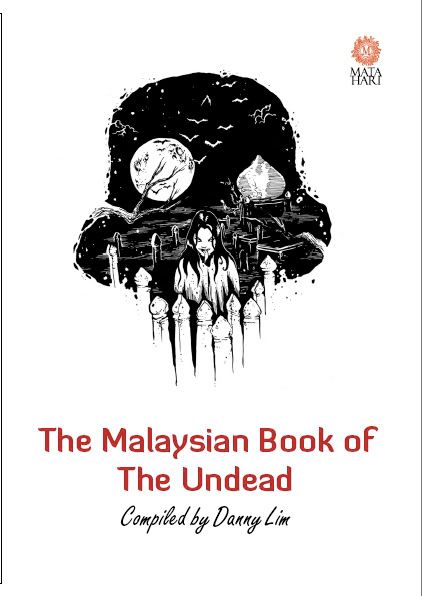Utopia Trauma by Rahmat Haron (SuaraSuara, 2006, 54 pages)When watching the film
Kami on the first day of Hari Raya, I was pleasantly surprised to see a book of poetry being repeatedly plugged. We see it being stolen by one of the lead characters, it is quoted a few times, and it even features in the final scene, which is one of quiet grief.
Well, here is that book! It was published two years ago but is enjoying a new lease of life thanks to its cinematic exposure. If you are as anarchic as the movie character (who comes to a bad end, by the way!) you too will sneakily ‘liberate’ this book from a nearby shop. If you are bourgeois like the rest of respectably society, you will pay for it.
And if you are really smart, you will notice that the title of this article is the title of Abbie Hoffman’s hippie classic. (Perhaps Rahmat Haron is a kind of hippie, too).
The cast of
Kami is quite pretty but this book is not pretty. Which is not to say it’s ugly. It is more like a howl, a drowned scream, a lurid cry. The words sit restlessly upon the page; they leap out at you, like maggots will leap out from the pan of a canine corpse that is being fried. (Omigosh, where did that image come from?)
Utopia Trauma distills the pain of being alive and sensitive in world where no one really cares. This existential torment is sometimes obscured by marijuana smoke or the distraction of a former stranger’s body, but it never goes away.
Where, then, do we place Rahmat Haron? His poetry is political but sneers at sentimental slogans. Instead it revels, in sadomasochistic fashion, in the pain of others, which also becomes the poet’s own pain. And be warned: There will be blood. And also pus, sperm and crap – all quite literally.
Images of death and martyrdom, from actual wars around us, dominate, but it’s also acknowledged that the ashes of these mostly unnamed martyrs will help a better world to blossom. Meanwhile, there is also the walking wounded of the contemporary undead: people who just refuse to experience anything. We are made to see that people in the first group, unheralded as they were, are of greater value.
Utopia Trauma demands to be read aloud, in as disruptive a way as possible. Much of the poetry has an incantatory style. This isn’t usually the soothing chant of a medicine-man but the vengeful shriek of a ghost, such as the narrator of the poem about Bakun.
You would think there is not much room for humour in the midst of all this misery. True, there is a dearth of dirty limericks that can be scrawled on lavatory walls later. But Rahmat’s mocking echoes of gentle and pop platitudes do bring out some laughter in the dark. I could have sworn that a KRU lyric is also defiled (on page 13, no less).
There are also drawings – intricate, vulnerable and confrontational, sometimes all at once, they become a miasma of staring eyes, spilled fluids (if the book were in colour, you will see red), and spiral whorls.
Sociologists might see Rahmat as a symbol of subterranean angst; here is a Malay who is disenfranchised and not in the least bit privileged. But, as the book’s publisher Raja Ahmad says in his Introduction, Rahmat is primarily a poet rather than a symptom. As such, he represents his own voice. Among local poets working today, it’s hard to find an equivalent, because Rahmat’s worldview is fixedly against not only capitalist excess but religious sentimentality.
His use of Indonesianisms evoke similar rebel-poets from across the pond, principally Chairil Anwar and Wiji Thikul. Chairil died at the age of only 27 (of, among other causes, syphilis) but his poems, especially Aku, were strident and unsentimental calls to arms. Wiji is the poet who mysterious disappeared during the Indonesian reformasi protests but left behind a stirring line: “
Hanya ada satu kata – lawan!” (there is only one word, resist!).
So yes, we do have Rahmat to do our resisting. Or is it too presumptuous to say he’s speaking on our behalf? His challenge is for us to also feel and to break out of our own cocoons. Although there is much pain in the world, those of us who do not want to feel will forever be shut out from the
rahmat (blessings) that this same filthy and profane reality can occasionally offer us.
(
Malay Mail, 22 October 2008)













